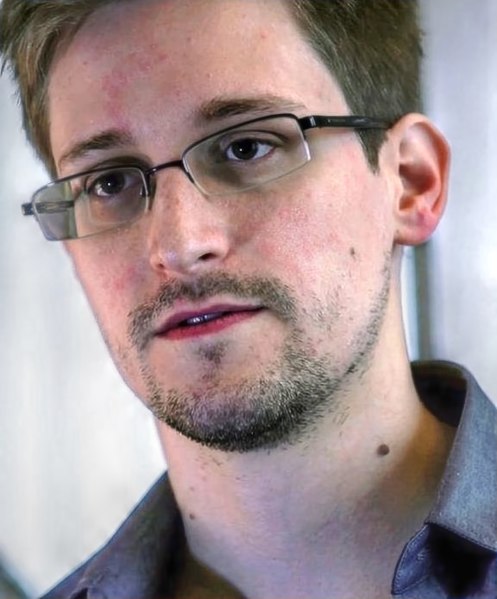UPDATE This post is from 2013, so before reading please read my 2014 piece for The Telegraph on 5 Reasons Edward Snowden is No Saint.
Yesterday, the agency Executives of the UK's three main civilian Intelligence services; the Security Service (domestic focus - aka MI5), the Secret Intelligence Service (foreign focus - aka MI6) and Government Communications Headquarters (primarily foreign focus - GCHQ), provided open testimony to the UK Parliament's Intelligence oversight committee.
Yesterday, the agency Executives of the UK's three main civilian Intelligence services; the Security Service (domestic focus - aka MI5), the Secret Intelligence Service (foreign focus - aka MI6) and Government Communications Headquarters (primarily foreign focus - GCHQ), provided open testimony to the UK Parliament's Intelligence oversight committee.
To guard against
inadvertent leaks of classified information, the BBC's coverage was
broadcast with a 2 minute delay.
Anyway, below are the
points that I found most interesting.
Sawers (Chief-MI6)
In response to a question
about why SIS failed to predict the Arab Spring, Sawers reacted sharply -
prediction is not the role of his agency, he said. Instead, Sawers offered a different
strategic purpose for SIS:
"We
acquire the secrets that other countries don't want us to know... we are not
all-knowing specialists in what's going to happen next month or next year."
This
comment was interesting for two reasons. First, Sawers was clearly trying
to emphasize the deliberate human intelligence focus of SIS. He wants
to foster a realization that espionage is ultimately about state sanctioned
theft - requiring a clandestine organization of necessarily secretive individuals. Sawers
also wants to guard against the perception that SIS is an omnipotent force.
Sawers also spoke to the
defining role of the UK Foreign Secretary as the authorizing Executive for
higher risk SIS operations. This is an important but relatively unknown fact.
Outside of exceptional
circumstances (when the Prime Minister's authorization is required), the Foreign
Secretary controls SIS operations. In functional terms, this arrangement
affords SIS a measure of political cover. However, it also induces an inherent politicization of UK Intelligence
operations.
Lobban
(Director-GCHQ)
Speaking
of a ''gradual darkening'', Lobban focused on the negative impact that
he believes Snowden's revelations have had for UK Intelligence operations. Lobban is especially concerned by GCHQ's weakened ability to spy on the communications of UK
adversaries. The Director insinuated that Snowden has caused UK Intelligence targets to
harden their operational security measures- mitigating their vulnerability to
monitoring. Although Lobban's comments are not surprising, his frustration
illustrates the depth of anger that GCHQ in particular holds against Snowden, Greenwald, Booze Hamilton and the NSA.
In my view,
Lobban's most important commentary was his defense of UK Intelligence officers.
If these officers were required to unjustly monitor innocent citizens, Lobban said, GCHQ
would have no staff. I have sympathy for this argument. Ultimately,
the vast majority of UK Intelligence professionals are patriots who care deeply
about their country. They want to prevent terrorists from killing British
citizens. They care little for a random dating status on Facebook.
Parker (Director General-MI5)
Parker's testimony was
pretty generic. He spent much of his time talking about the hard balance
between UK collection requirements and civil liberties. Parker also went out of
his way to emphasize the significant number of extremists that currently reside
in the UK (this is a standard MI5-DG line, but an honest one).
Leading
MI5, Parker has a key sustaining objective in his political testimony - to
reinforce the political/public understanding that his agency lacks the ability
to intensively monitor every threat that it wishes to. In essence, as with
Sawers-MI6, Parker wants us to understand that MI5 cannot guarantee total security. This is an evident
reality. Nonetheless, the DG's discomfort in talking about the
operational methodology of the UK's domestic Intelligence apparatus is noteworthy. In short, Parker wants to mitigate the populist-centric media
scrutiny of his agency's extensive operations. Under the authority of the Home
Secretary (in a similar vein to MI6-Foreign Secretary), MI5 has
the authority to conduct aggressive surveillance. Conversely, in the United
States, the FBI (lead agency for US domestic counter-terrorism) is a law
enforcement agency that derives its power from judicial authority (unlike MI5,
FBI wiretaps must be authorized by Judges).
Recognizing the particular arguments of each Executive, there was one theme that sustained throughout yesterday's testimony. Intelligence
work isn't about PR. It's about PP. Public Protection.
My take on US-UK intel. cooperation can be found here. Other related writings (under 'Other' section)

Photo: BBC








